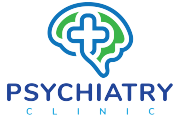Living with Schizophrenia Patient
Living with Schizophrenia Patient; Positive and Negative role of family
Families play a very crucial role in the adjustment of people with schizophrenia. It is worth mentioning that it has not only a positive impact on long term outcome but also has a negative impact, if not managed properly. The family role has a huge impact on increasing the chances of symptoms reoccurrence once they have been treated if no proper guidance is provided. Following are some do’s and don’ts for the families of schizophrenic families so that symptom reemergence is avoided and recovery is ensured.
Four Family roles that improve the recovery
- Social stimulation
Our brain remains active and functions properly when we interact with other persons. Even if we are not talking, just listening to another person, a number of our brain areas have to be active. Research has proven that schizophrenic patients who are isolated or institutionalized, more likely to have negative symptoms and their long-term prognosis is compromised.
- Adherence to treatment
A single preventable factor that can have dire consequences in schizophrenia management is not taking medicine regularly. It is true that medicines are usually continued for a longer period of time but they have to be taken regularly. A number of factors can result in poor compliance with treatment, such as lack of insight, forgetfulness, and side effects of the medicine. With the support of family, the adherence to the treatment can be improved.
- Moral and emotional support
During the journey toward recovery, some ups and downs do come, and the patient becomes frustrated and feels helpless. Here comes the need for a family’s moral support
- Restoration of functioning
One of the treatment goals is to make patients free from symptoms so that the patients come to baseline functioning. This means a continuation of study, job, business, interpersonal relations, marital life, etc. With the support of family and social skill training, the patient is helped to search for the proper job, and to give financial support when a job is not started.
Three things that have a detrimental effect on recovery
Some family dynamics have unfavorable even detrimental effects on long term recovery from schizophrenia. Among them, high expressed emotions (HEE) have a pivotal role in causing the symptoms to reoccur. According to research if a family has high expressed emotions and the patient is living with a family more than 35 hours per week, chances of relapse will be doubled.
Let’s have a look into it:
Hostility
It is a negative attitude and it is based on the assumption that a patient doesn’t want to get better. So the blame is directed towards the patient. Not only for the behavior of the patient, but the patient is also held responsible for the suffering of the family. A few examples are here.
“You are not trying to get better”
“It is because you, that I am unable to focus on my work”
Emotional over-involvement
Family is unduly involved with the patient, just like overprotectiveness. The families with emotional over-involvement, usually intrude in all the daily activities of a patient. Their criticism and appreciation for the patient’s behavior are usually exaggerated. The family thinks that the patient is not able to perform a task independently.
Critical comments
These are the combination of above. At the same time family believes that the disorder is not entirely in the patient’s control but still has critical comments. Here is an example of critical comment.
“A 30 years old female is suffering from schizophrenia with negative symptoms. She remains isolated most of the time. Her father is emotionally over-involved and keeps on suggesting and motivating her regarding social interaction. When he is frustrated, he becomes hostile towards the patient.”
Communication tips for the family
The following ways are suggested for the families to adopt a strategy contrary to HEE that is Low expressed emotions.
- Blame avoidance and reduction. Contrary to hostility, it is better neither to blame themselves nor their relatives for the illness and for the difficulties they are facing in lieu of the patient’s illness. This is because the patient is not being willingly showing these symptoms. Rather it is their mental condition for which they are not even aware.
- Families need to express both positive and negative feelings but in a constructive, empathic, non-demanding manner rather than in finger-pointing, critical, or overprotective way. This can be achieved in the following manner:
- Use of “I” statement rather than “You” statement e.g. if the patient is gaining weight because of the use of antipsychotics so rather being critical and saying your belly is large enough it’s better to say “I think adopting and regulating our meals will make us healthy”
- Behavior should be targeted rather than the person.
- Changes that the family is expecting must be clearly stated to the patient rather than being sarcastic to him or her.
- The patient should be reinforced for the positive changes that he or she is bringing in his or her lifestyle. This reinforcement can be in the form of reward or appreciation.

